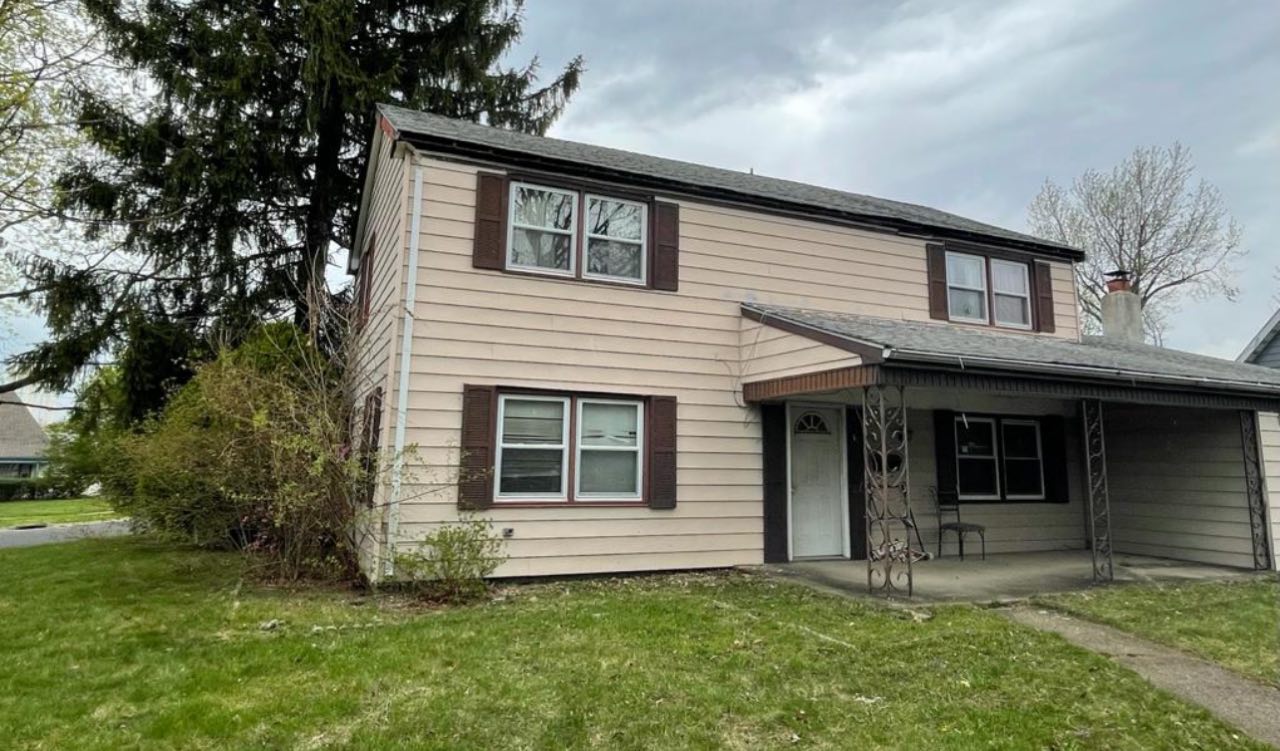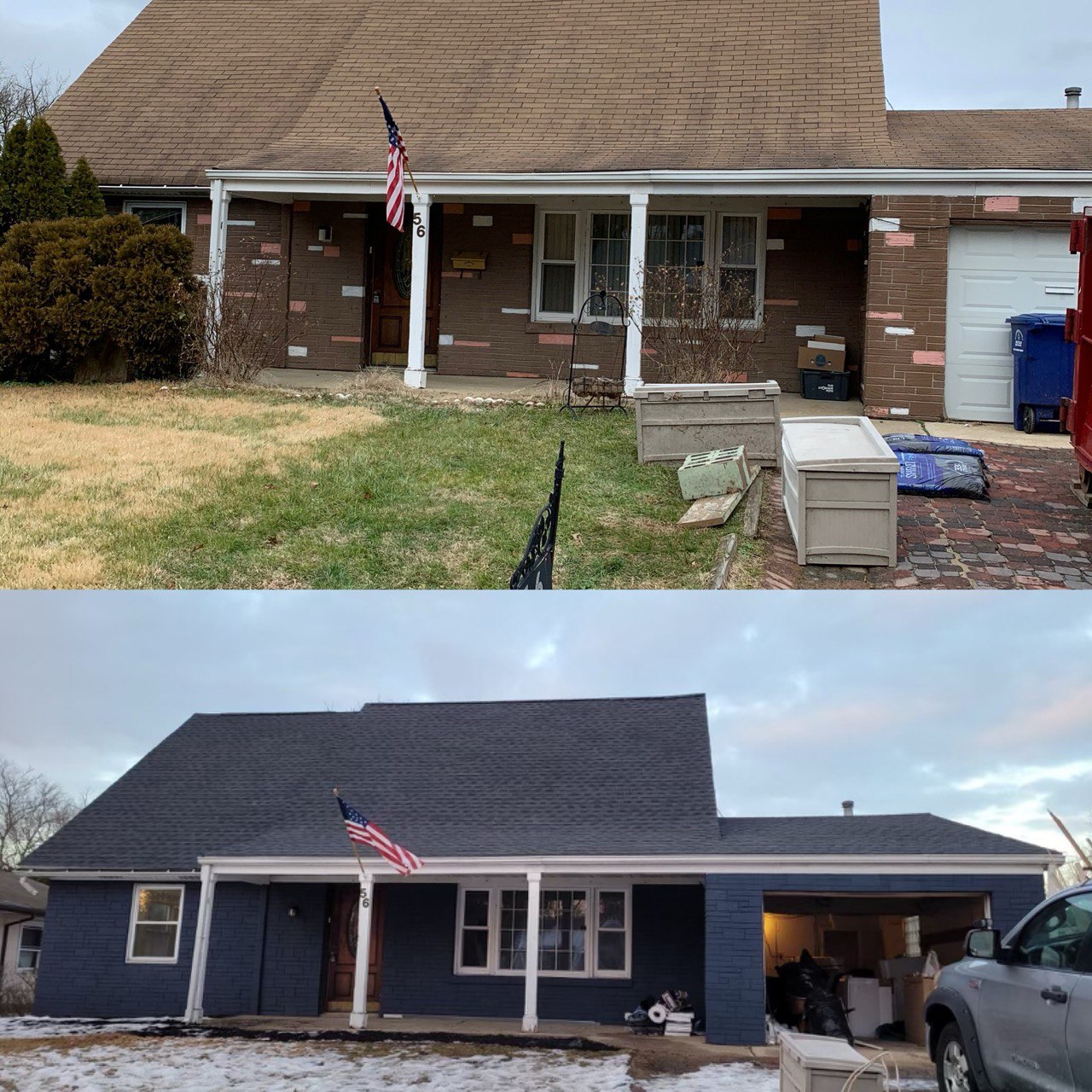Selling a House As-Is in New Jersey: Benefits and Insights

Selling a house as-is can be a convenient option for homeowners in New Jersey who want to avoid the time and expense of making repairs or renovations. By selling a house in its current condition, homeowners can save themselves the hassle of dealing with contractors and the stress of coordinating renovations. Additionally, selling as-is can lead to a quicker sale, allowing homeowners to move on with their lives faster.
If you’re considering selling your house without making any repairs, here are the benefits:
- Time and Cost Savings: By selling a house as-is, homeowners can avoid the time-consuming and costly process of making repairs or renovations.
- No Contractor Hassles: Selling as-is eliminates the need to find and coordinate with contractors, saving homeowners from the stress and inconvenience of dealing with multiple parties.
- Quicker Sale: When selling a house as-is, the process is often faster as there are no delays caused by repairs or renovations. This allows homeowners to move on with their lives sooner.
Now that you know the benefits of selling a house as-is, let’s explore the process:
- Evaluate your House: Assess the current condition of your house and determine its market value in its current state.
- Disclose any Issues: It is important to disclose any known issues or defects with the house to potential buyers to maintain transparency.
- Price it Right: Set a competitive price for your house considering its as-is condition and the local real estate market.
- Market your House: Utilize online listings, real estate agents, and other marketing channels to reach potential buyers.
- Negotiate and Close the Deal: Work with potential buyers to negotiate a fair price and terms. Once an agreement is reached, proceed with the closing process.
In summary, selling a house as-is in New Jersey offers several benefits, including time and cost savings, avoiding contractor hassles, and a quicker sale. By evaluating your house, disclosing any issues, pricing it right, marketing effectively, and negotiating the deal, you can successfully sell your house without making any repairs. If you’re ready to move on from your current property, selling as-is may be the right choice for you.
Legal Requirements and Considerations When Selling a House As-Is in NJ
Selling a house as-is in NJ can be complex, and it’s important for sellers to understand their obligations. One of the key legal obligations for sellers is to provide a seller’s disclosure regarding the property’s condition. This disclosure is meant to inform potential buyers about any known issues or defects with the property.
The seller’s disclosure should be filled out accurately and honestly, as any misrepresentation or omission of material facts can lead to legal consequences. It’s important for sellers to thoroughly inspect the property and disclose any issues they are aware of, such as:
- Structural problems
- Water damage
- Plumbing issues
This allows buyers to make an informed decision about whether or not to proceed with the purchase.
In addition to the seller’s disclosure, sellers may also need to comply with other legal requirements when selling a house as-is in NJ. Some of these requirements may include:
- Lead-based paint disclosure
- Radon disclosure
- Disclosure of death on the property
Sellers should familiarize themselves with these requirements and ensure they are in compliance to avoid any legal issues down the line.
Selling a house as-is in NJ can be a viable option for sellers who are unable or unwilling to make repairs or renovations before selling. However, it’s important for sellers to understand their legal obligations and responsibilities when taking this route. By providing a thorough and accurate seller’s disclosure and complying with any other legal requirements, sellers can ensure a smooth and legally sound transaction.
Timing is Key: Best Time to Sell a House in New Jersey
When it comes to selling a house in New Jersey, timing can play a significant role in the success of your sale. The best time of the year to sell a house in NJ is often during the spring and summer months. This is when the real estate market tends to be most active, and buyers are actively looking for new homes.
The warmer weather and longer days make it easier for buyers to view properties and make decisions. During the spring and summer, the housing market in NJ tends to see an increase in inventory and buyer demand. This means that there are more potential buyers competing for the available properties, which can drive up prices and lead to quicker sales.
Additionally, families with children often prefer to move during the summer months to avoid disrupting the school year.
Tips for Selling Your House during the Preferred Time
- Ensure your home is in its best possible condition. This may involve making necessary repairs, improving curb appeal, and decluttering the interior. A well-maintained and visually appealing home is more likely to attract buyers and fetch a higher price.
- Consider working with a real estate agent who has experience in the local market. They can help you set the right listing price, market your property effectively, and negotiate with potential buyers. An agent will also have access to valuable resources and networks that can help speed up the selling process.
- Be prepared to be flexible with your timeline and negotiate on certain terms. In a competitive market, buyers may have multiple options to choose from, so being accommodating can make your property more appealing. This could include offering incentives such as covering closing costs or being willing to negotiate on the closing date.
By understanding the seasons and market trends that can impact the selling process and implementing these tips, you can increase your chances of a successful sale during the best time of the year in New Jersey.
Selling a House “As-Is” in New Jersey: What Homeowners Need to Consider
Selling a house “as-is” in New Jersey can be a viable option for homeowners who want to avoid the hassle of making repairs or renovations before putting their property on the market. However, it’s important to consider the costs involved in selling a house as-is. Let’s break down the expenses that homeowners need to consider.
Preparing the Home for Sale
While you may not be required to make major repairs, it’s still important to make the house presentable to potential buyers. Consider the following expenses:
- Cleaning the house
- Decluttering
- Staging the home to enhance its appeal
Realtor Fees
If you choose to work with a real estate agent, they will typically charge a commission based on the final selling price of the house. It’s important to discuss these fees upfront and understand how they will impact your overall profit.
Buyer Incentives
In order to attract buyers, you may need to offer incentives such as:
- Covering closing costs
- Providing a credit towards repairs or renovations
These incentives can help make your property more appealing to potential buyers, but they can also impact your bottom line.
Closing Costs
These costs include fees for:
- Title searches
- Appraisals
- Legal services
It’s important to work with a reputable closing company to ensure that these costs are handled properly and that the transaction goes smoothly.
Relocation Expenses
If you are selling a house as-is and planning to move to a new location, consider the following expenses:
- Moving services
- Temporary housing
- Other related expenses
Overall, while selling a house as-is can be a convenient option for homeowners, it’s important to carefully consider the costs involved. By understanding and budgeting for these expenses, you can make an informed decision and ensure a successful sale.
Selling a House in New Jersey: Hiring a Real Estate Agent vs. Selling By Oneself
When it comes to selling a house in New Jersey, homeowners have various options to choose from. Two popular methods are hiring a real estate agent or selling the house by oneself. Each option has its benefits and drawbacks, and it’s important for homeowners to weigh them carefully before making a decision.
Hiring a Real Estate Agent
Hiring a real estate agent can be beneficial for homeowners who want professional guidance throughout the selling process. Agents have extensive knowledge of the local market and can help determine the right listing price for the house. They also handle marketing and advertising, which can attract more potential buyers. Additionally, agents have negotiation skills that can help sellers get the best possible price for their property.
- Benefits of Hiring a Real Estate Agent:
- Professional guidance throughout the selling process
- Extensive knowledge of the local market
- Help with determining the right listing price
- Marketing and advertising expertise
- Negotiation skills to get the best price
However, there are drawbacks to hiring a real estate agent as well. One major drawback is the cost. Agents typically charge a commission fee, which is a percentage of the final sale price. This fee can range from 5% to 6% of the sale price, which can be a significant amount of money. Another drawback is the lack of control over the selling process. Sellers have to rely on the agent to handle all aspects of the sale, including negotiations and paperwork.
Selling By Oneself (FSBO)
Selling a house by oneself, also known as “For Sale By Owner” (FSBO), can be a more cost-effective option. Homeowners who choose this method save on the commission fee that would have been paid to an agent. They also have complete control over the selling process, from setting the listing price to negotiating with potential buyers. Additionally, selling by oneself can be a learning experience, allowing homeowners to gain knowledge about the real estate market.
- Benefits of Selling By Oneself:
- Cost savings on agent commission fee
- Complete control over the selling process
- Opportunity for learning about the real estate market
However, selling a house by oneself also has its challenges. Homeowners need to be familiar with the local market and have the time and resources to handle marketing and advertising. They also need to be prepared for the negotiating and legal aspects of the sale. Without the expertise of a real estate agent, homeowners may find it more difficult to attract potential buyers and navigate the complexities of the selling process.
Conclusion
Homeowners in New Jersey have options when it comes to selling their house. Hiring a real estate agent offers professional guidance and expertise, but comes with a cost. Selling by oneself can be more cost-effective, but requires knowledge and time to handle all aspects of the sale. It’s important for homeowners to carefully consider their specific situation and goals before deciding which option is right for them.
Selling a House As-Is: A Step-by-Step Guide
Selling a house as-is can be a viable option for homeowners who want to avoid the hassle of making repairs or dealing with an agent. By following a step-by-step guide, homeowners can successfully sell their house as-is without the need for an agent.
- Research the Local Real Estate Market
- Market the Property
- Negotiate with Potential Buyers
- Handle the Paperwork
Thoroughly research the local real estate market to determine the value of the property. This will help set a realistic asking price and attract potential buyers.
List the property on online platforms and utilize social media to reach a wider audience. Highlight the unique features of the house and emphasize the potential for renovation or investment.
Be prepared to answer questions about the condition of the property honestly. Disclose any known issues upfront to avoid legal complications later on. Be open to negotiating the price and terms of the sale to reach a mutually beneficial agreement.
Consult with a real estate attorney to ensure all legal requirements are met and review any contracts or agreements before signing.
Selling a house as-is without an agent requires careful planning, effective marketing, and strong negotiation skills. By following this step-by-step guide and utilizing available resources, homeowners can successfully sell their house as-is and achieve their desired outcome.
Selling a House: Sell As-Is or Invest in Repairs?
When it comes to selling a house, homeowners often have to make a decision between selling it as-is or investing in repairs and renovations. Each option has its own pros and cons, and it’s important to weigh them carefully to determine which one is more suitable for your situation.
Selling a House As-Is
Selling a house as-is can be an attractive option for homeowners who want to avoid the time and cost associated with making repairs. It allows you to sell the property in its current condition, without having to invest in any upgrades or renovations. This can be particularly beneficial if the house requires extensive repairs or if you’re looking to sell quickly. By selling as-is, you can save on the expenses of repairs and potentially sell the house faster.
However, it’s important to note that selling a house as-is may limit your potential buyer pool. Many buyers prefer to purchase a home that is move-in ready and may be hesitant to take on a property that requires significant repairs. This means that you may have to lower your asking price or be prepared for a longer selling process. Additionally, selling as-is may also result in a lower sale price, as buyers may factor in the cost of repairs when making an offer.
Investing in Repairs and Renovations
On the other hand, investing in repairs and renovations can help you maximize the value of your home and attract more potential buyers. By addressing any issues or outdated features, you can make your property more appealing and increase its marketability. This can lead to a higher sale price and a quicker sale. However, it’s important to carefully consider the cost of repairs and renovations and ensure that they will provide a return on investment. It’s also worth noting that the time and effort required for renovations may not be feasible for every homeowner.
Making the Decision
Ultimately, the decision between selling a house as-is or fixing it up depends on your individual circumstances and goals. If you’re looking for a quick sale and are willing to accept a lower price, selling as-is may be the right choice for you. However, if you have the time and resources to invest in repairs and renovations, it can potentially lead to a higher sale price and a more competitive market. It’s important to carefully weigh the pros and cons of each option and consult with a real estate professional to determine the best course of action for your situation.
Buyer Rights in an As-Is Contract
When buying a property, it’s important to understand your rights as a buyer, especially when entering into an as-is contract. In New Jersey, buyers have certain protections and the ability to back out of the contract under certain circumstances. Let’s take a closer look at what these rights entail.
What is an As-Is Contract?
In an as-is contract, the seller is not responsible for making any repairs or improvements to the property. This means that the buyer is essentially purchasing the property in its current condition, with all its faults and defects. However, this does not mean that the buyer has no recourse if they discover major issues with the property after signing the contract.
Buyer Protections in New Jersey
In New Jersey, buyers can terminate an as-is contract if they uncover material defects that were not disclosed by the seller. Material defects are issues that significantly affect the value or habitability of the property. For example, if the seller failed to disclose a serious structural problem or a major plumbing issue, the buyer may have grounds to back out of the contract.
It’s important to note that buyers must act in a timely manner if they wish to terminate the contract due to undisclosed defects. They typically have a specific window of time, often within 10 days of receiving the seller’s disclosure, to notify the seller of their intent to terminate the contract. This allows the seller an opportunity to address the issues or negotiate a resolution with the buyer.
Conclusion
While an as-is contract may seem daunting, buyers in New Jersey do have rights and options if they discover undisclosed defects in the property. It’s crucial for buyers to thoroughly review the seller’s disclosure and conduct their own inspections to uncover any potential issues. By understanding their rights and acting promptly, buyers can protect themselves and make informed decisions when purchasing a property.
Financial Considerations When Selling a House As-Is in NJ
When selling a house as-is in NJ, there are several financial considerations to keep in mind. One of the main concerns is the potential financial implications and losses that may come with selling a house in its current condition.
1. Impact on Sale Price: Buyers may be hesitant to purchase a property that requires significant repairs or updates, which can result in a lower sale price. Additionally, selling a house as-is may limit the pool of potential buyers, further impacting the sale price.
2. Accurately Assess Property Condition: To minimize financial losses and maximize the sale price, it’s important to accurately assess the condition of the property and determine what repairs or updates are necessary. Making minor repairs or improvements can help attract more buyers and potentially increase the sale price. Conducting a pre-listing inspection can also help identify any issues that may affect the sale price.
3. Thorough Real Estate Contract and Seller Disclosures: Be thorough with the real estate contract and seller disclosures. Providing accurate and detailed information about the property’s condition can help set realistic expectations for potential buyers and minimize the risk of legal issues down the line.
4. Cost of Preparing the Home for Sale: Consider the cost of preparing the home for sale, such as cleaning, staging, and marketing expenses.
In Conclusion: Selling a house as-is in NJ may come with some financial considerations and potential losses. However, by carefully assessing the property’s condition, making necessary repairs, and providing accurate information to potential buyers, sellers can help minimize financial losses and maximize the sale price.
Selling a House As-Is in New Jersey: Pros and Cons
Selling a house as-is in New Jersey can have both advantages and disadvantages. It’s important for homeowners to weigh these factors carefully before making a decision.
Advantages of Selling a House As-Is
- Avoid the time and expense of making repairs and updates
- Beneficial for those facing financial difficulties or needing to sell quickly
- Set your own closing date and have more control over the selling process
Disadvantages of Selling a House As-Is
- Buyers may be hesitant to purchase a house that requires significant repairs
- Limited pool of potential buyers and potentially lower selling price
- May need to disclose known issues with the property
Ultimately, the decision to sell a house as-is should be based on the specific circumstances and needs of the homeowner. If time and money are a concern, selling as-is may be a viable option. However, homeowners should carefully consider the potential impact on the selling price and the overall selling process.
As the saying goes, “In every challenge, there is an opportunity.” Selling a house as-is may present challenges, but it also offers the opportunity for homeowners to move forward and start anew. Whether it’s to avoid foreclosure, downsize, or simply find a better-suited property, selling a house as-is can provide the freedom and flexibility needed to take the next step.
If you’re considering selling your house as-is in New Jersey, Savannah Properties is here to help you navigate the process and ensure a fair cash price and a quick closing. Contact us today to learn more about how we can assist you in selling your house as-is.







